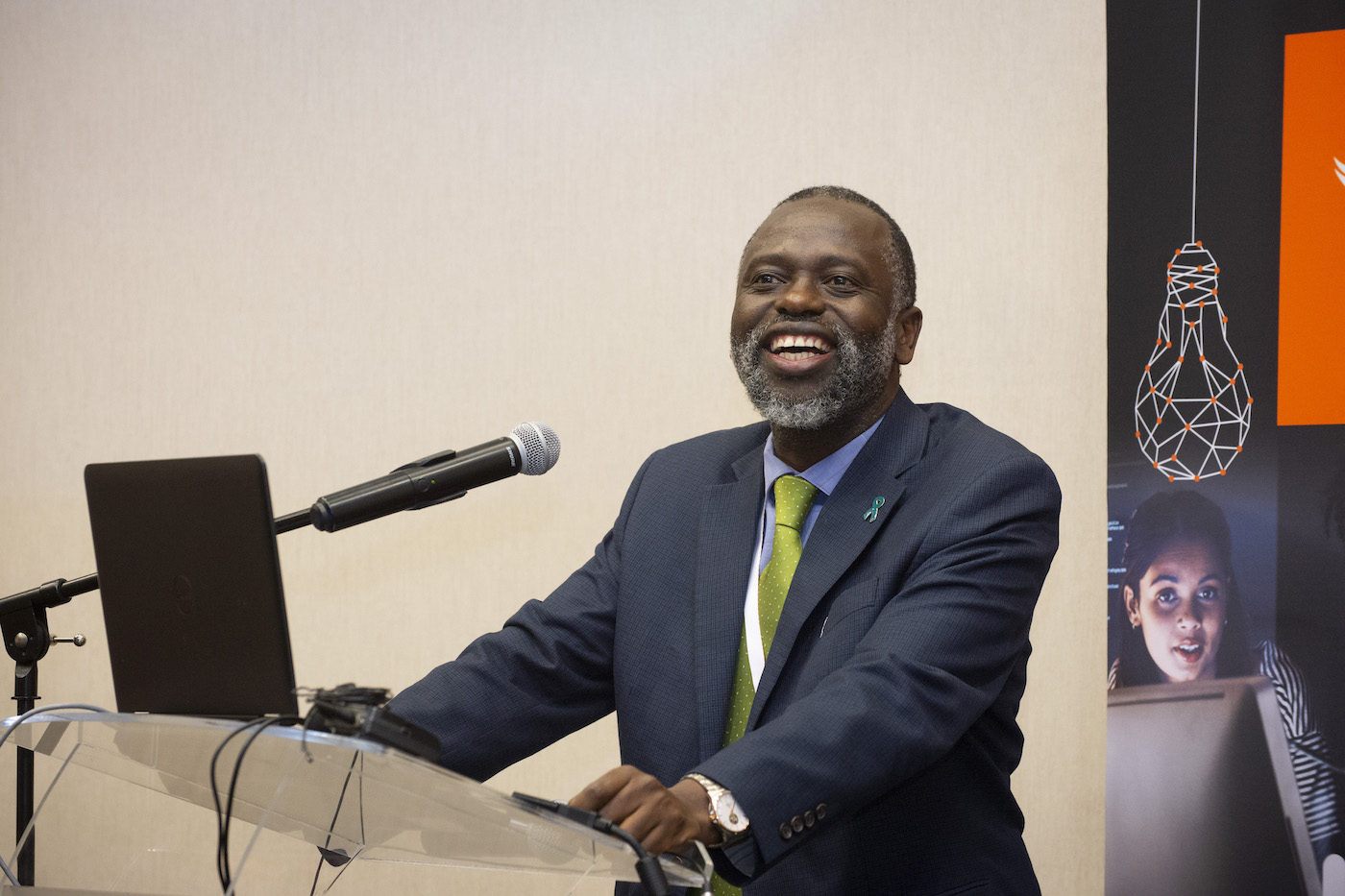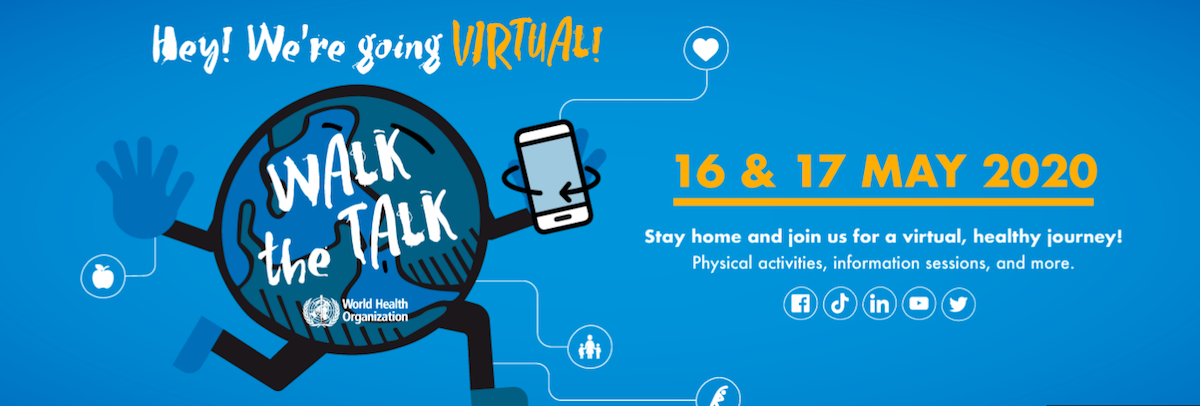The FISU Healthy Campus project launches officially on 12 May, opening up an unprecedented network for universities around the world to share best practices, successful projects and knowledge in the area of maintaining health and well-being on campuses.
Over the last one year, FISU has partnered with seven major world universities, who have been part of the pilot project. One of the seven is the University of Johannesburg in South Africa and we spoke to Vice-Chancellor and Principal of the University, Professor Tshilidzi Marwala in the run up to the launch.
Professor Marwala is an accomplished scholar and educationist with multi-disciplinary research interests that include the theory and application of artificial intelligence to engineering, computer science, finance, social science and medicine. He has an extensive track record in human capacity development and has published 15 books on artificial intelligence. Excerpts from the interview.

Q. Under your leadership, the University of Johannesburg has closely partnered FISU in developing the Healthy Campus project. As one of the seven pilot universities that know the intricacies of this project, what according to you, are the real strengths of this project?
A. The focus on the holistic integration of wellbeing in every aspect across the entire campus community. The ability of each of the seven universities to share and learn best practices. This will help us as a university, stress the importance of healthy lifestyles to our university community.
Q. What do you see as the value that universities will gain by coming on board this FISU Healthy Campus project?
A. The value of this collaboration is that it brings coherence and interaction between staff and students towards a common goal such as, health, for instance. Healthier workforce and students will result in a more productive and achieving institution.
Q. The University of Johannesburg or UJ as it is affectionately known – has four large campuses. What are the current policies and programmes in place that ensure physical activity and health on these campuses? How healthy is your student population?
A. All four of our campuses have sporting facilities including gymnasiums. We provide three tiers of sports for our students. Firstly, there is mass participation that allows every student to actively participate through residence life, internal leagues that offer organised sport for faculties, residences including student societies. The sport offered in residence league are Athletics, Football, Netball, Squash and Hockey for both men and women. We organise sports days for different groups, we also promote indigenous games to introduce our student population so they can experience this firsthand. Through residence leagues, we promote the conversations about mental health, women’s health and men’s health this is done with campus health. Secondly, there is competitive sports aimed at more competitive students who represent the University in local Johannesburg leagues. Thirdly, there is the elite level aimed at our students who represent UJ at Provincial, National and International Competitions.
Q. Are there any major challenges faced while implementing programmes for health and physical activity? How do we overcome them?
A. One of our biggest hurdles is that commonly organised events are not well attended largely due to our academic programs. We have launched a route to promote walking on our APK campus during our culture hour. Similar initiatives will be implemented at all the other campuses. There is still much to do. We need to ensure that we make health initiatives and information visible and enjoyable in order to promote awareness, dialogue, participation and activations. Sustainable development and education and access to health for all can only be achieved through institutional changes at all levels. Integrating health, in its broadest sense, into the university culture and creating cooperation and decision-making processes is a long-term project. The success of this will depend on the cooperation of all the different faculties and divisions working as a collective.
Q. What learnings and outcomes can you share with us regarding any particular project on the UJ campus, which can be shared and useful to the larger Healthy Campus programme?
A. The UJ Future walk, which offer 5km and 7km routes, is an annual walk, which encourages mass participation, inclusive of all ages and physical abilities. This has emerged as a family day, serving the broader UJ community, as well as fundraising platform to assist needy students.
Q. Are you a believer in the theory that regular physical activity improves mental capacity as well?
A. Yes, exercise is not just about aerobic capacity and muscle size. People who exercise regularly tend to do so because it gives them an enormous sense of well-being. They feel more energetic throughout the day, sleep better at night, have sharper memories, and feel more relaxed and positive about themselves and their lives. It is also a powerful tool in coping with many mental health challenges. It has been proven that regular exercise can have a profoundly positive impact on depression, anxiety and ADHD, for instance. Scientific studies show that it promotes changes in the brain, including neural growth, reduced inflammation, and new activity patterns that promote feelings of calm and well-being. It also releases endorphins, powerful chemicals in your brain that energise your spirits and make you feel good.
A recent study done by the Harvard T.H. Chan School of Public Health found that running for 15 minutes a day or walking for an hour reduces the risk of major depression by 26%. The message that many miss is that you do not have to be a fitness fanatic to reap the benefits of exercise. Research indicates that modest amounts of exercise can make a difference, regardless of age or fitness levels.
Q. What are the new challenges that have emerged post-COVID-19 for students, as well as for the teaching community, particularly at UJ?
A. We have constantly been monitoring the external situation and working to mitigate risks internal to the university – while many of our students have responded positively to the shift towards remote teaching and learning, this has not been without challenges. The shift towards remote teaching and learning has been necessitated by the national lockdown but there are policies we will need to keep in place as we move back to a sense of normalcy. There will be smaller classrooms, we will spend at least 60% on online teaching and learning and we will introduce the face recognition algorithm and voice activation to prevent people from touching elevators and access points.
Q. What do you believe should be the overarching, global goals for FISU’s Healthy Campus project?
A. Linking this project to the (United Nations) Sustainable Development Goals will give the project more traction whilst it also benefits the individual universities.
Did you know?
FISU is supporting the World Health Organisation’s #WalkTheTalk campaign that urges people to increase their physical activity and promotes #HealthForAll. Watch out for more information including a photo contest, on our social media. And find out more here. –>

Watch!
The full interview with Prof. Tshilidzi Marwala.
